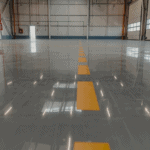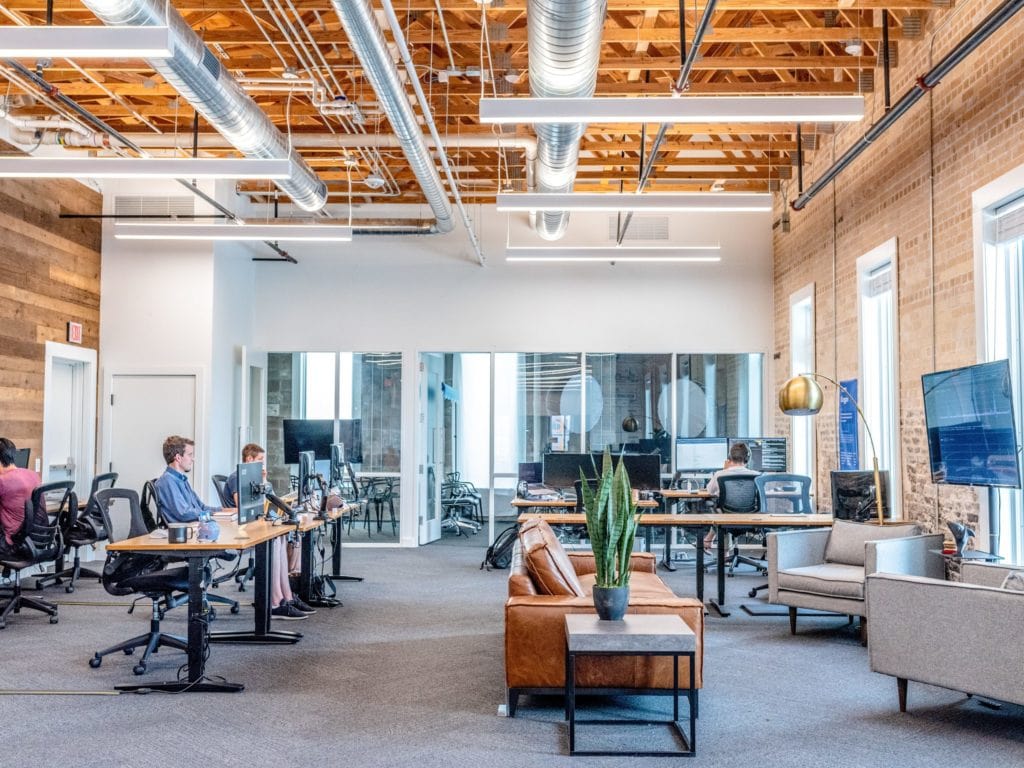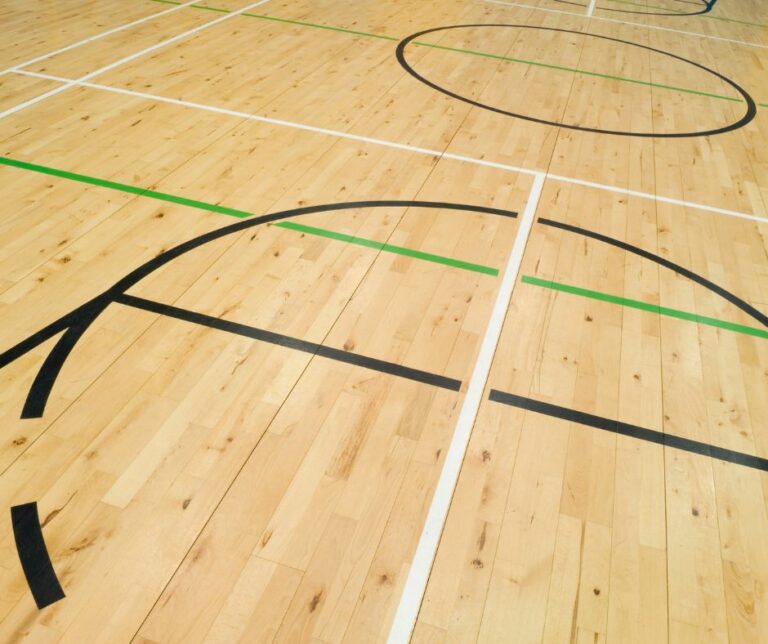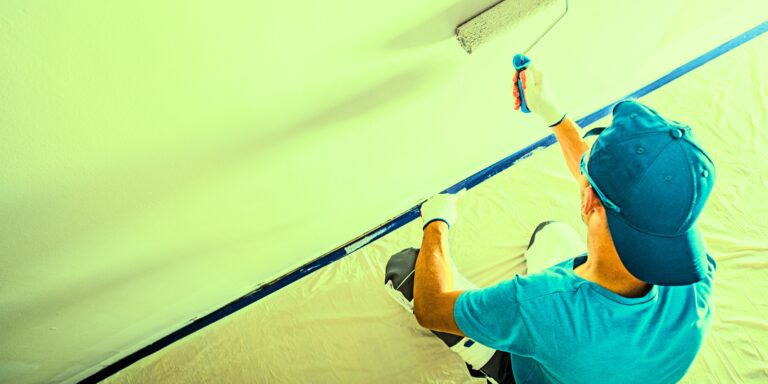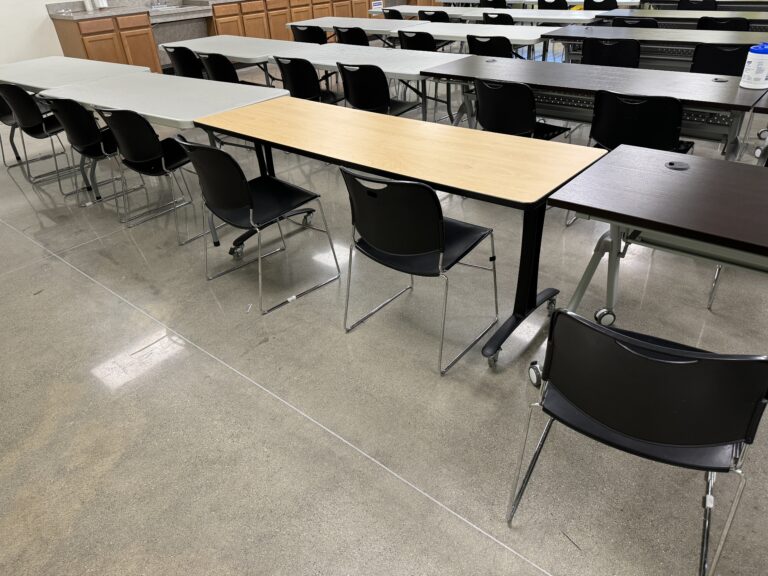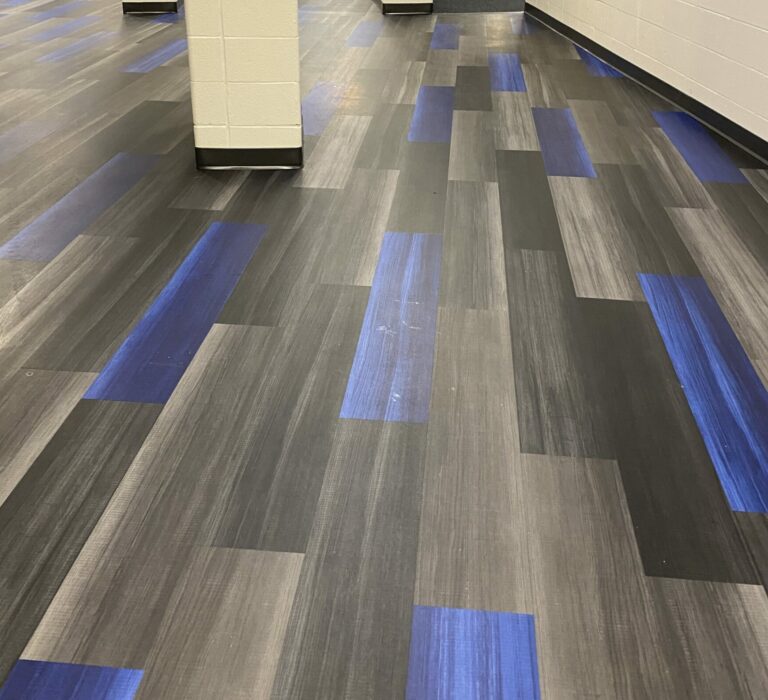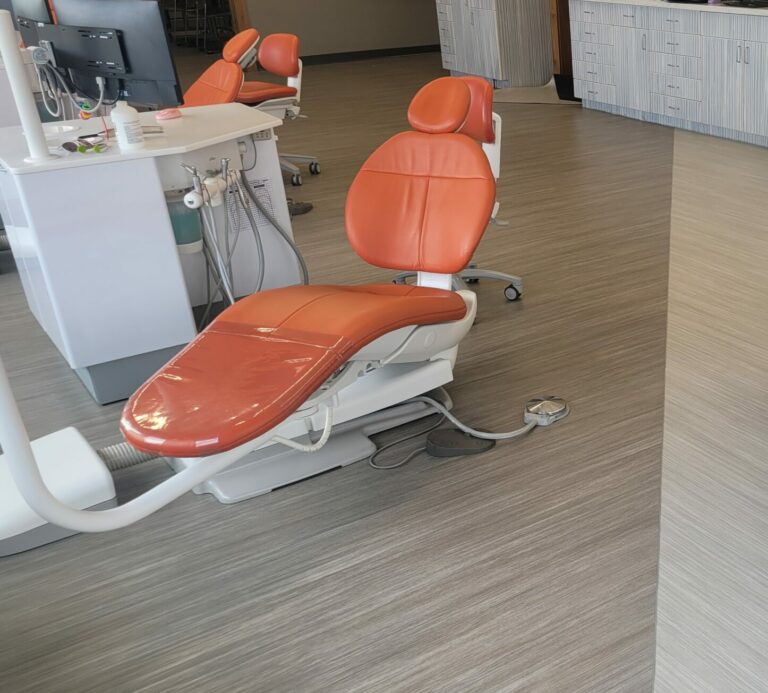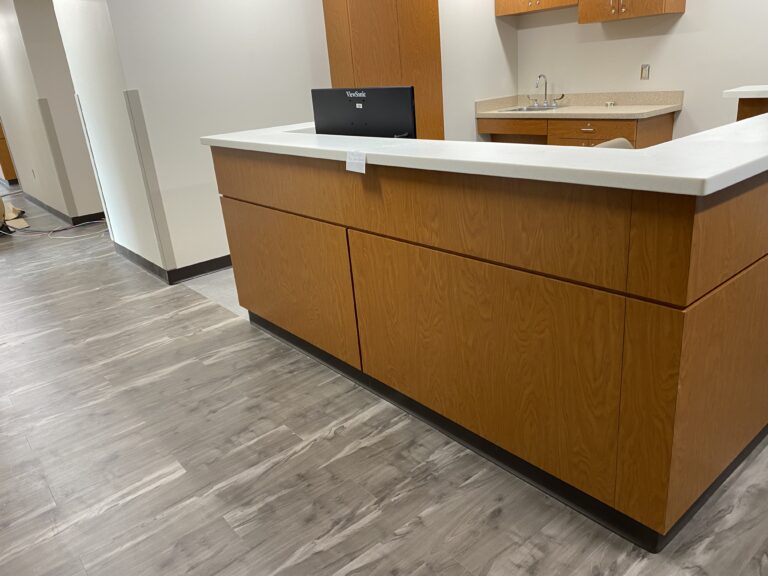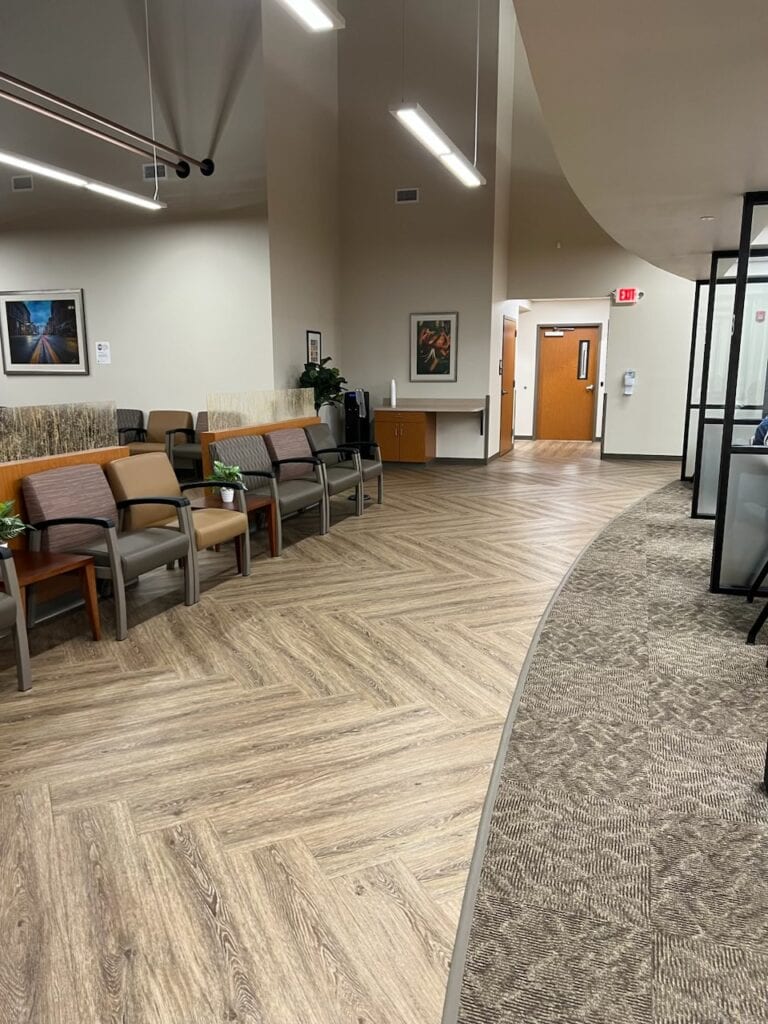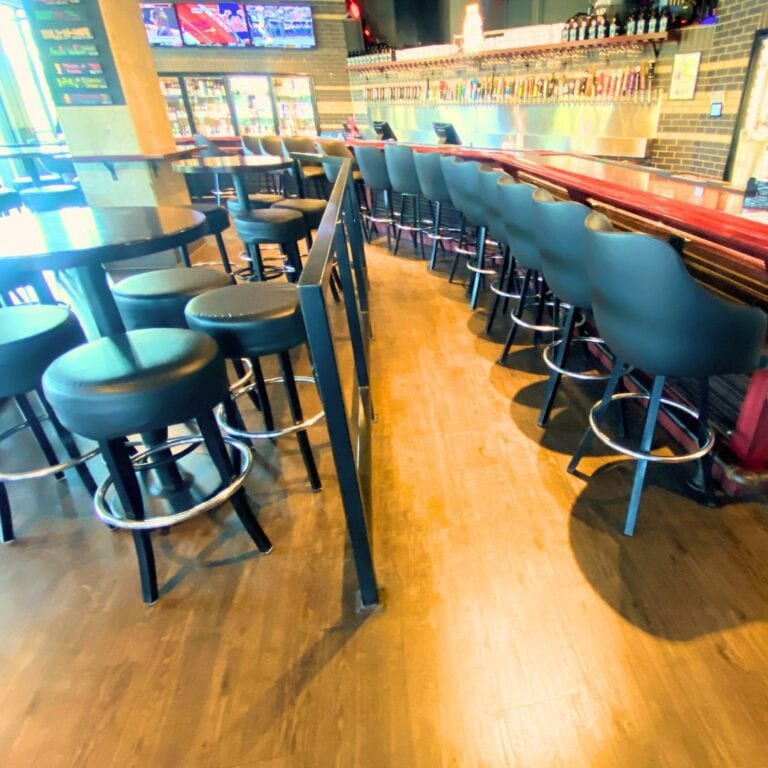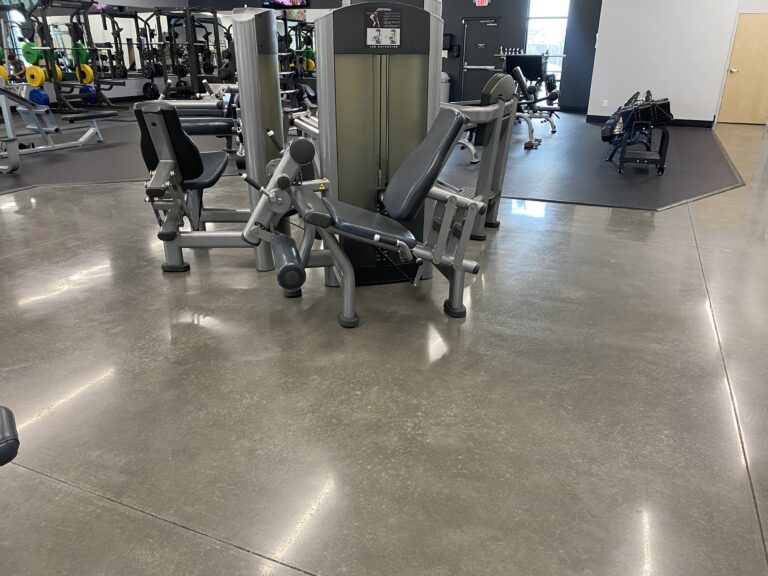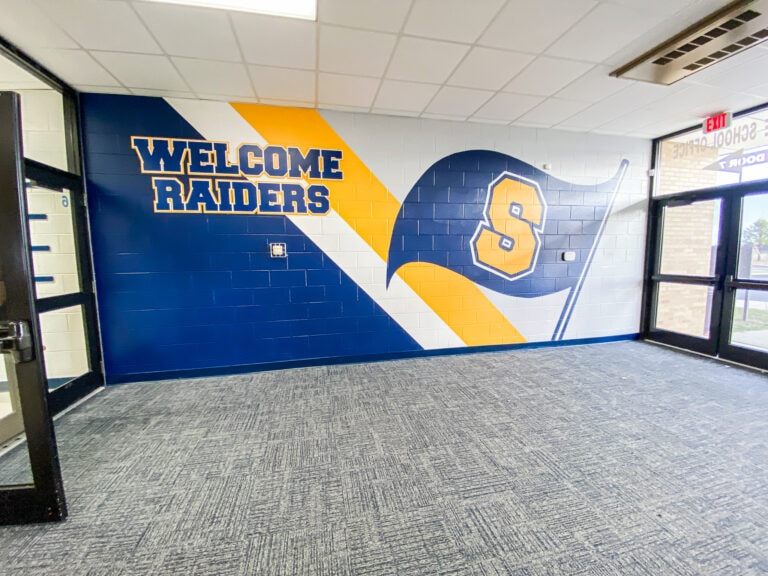When it comes to choosing flooring for commercial use there are a variety of different options available to you based on your needs and design aesthetic.
One of the most popular options is resinous flooring, which is also known as epoxy. Epoxy has proven itself time and again due to its durability, chemical resistance, high aesthetic, and ease of maintenance which is why it continues to remain such a popular option.
WHAT IS EPOXY?
Epoxy is an adhesive, paint, plastic, or other material that is created as a polymer of epoxides. The term “epoxy” is used to describe coatings that are created from two components: a mix of two different chemicals referred to as “resin” and “hardener”. Resin is odor-free, light, and can be tinted to a variety of colors. The hardener is usually a dark color and has a strong odor.
Epoxy is resistant to almost any form of decay, is mechanically tough, and highly adhesive to the surface with which it bonds making it a great option for a variety of different commercial uses.
10 IMPORTANT FACTS ABOUT EPOXY
Epoxy is known to be the highest strength resin
Because of the two part-system that creates epoxy, forming the chemical bond, it won’t chip or peel away from the flooring surface as long as the proper steps are taken during surface preparation.
Epoxy floors are durable and can handle a lot
Many of you have probably seen epoxy flooring in garages and industrial warehouses. This is because of the abuse the floors can withstand. In addition to being durable, they’re also almost impermeable. According to Floorguard, “Due to the unique chemistry that is between the molecules of the epoxy resin, the epoxy chemical compounds are cross liked which makes them highly resistant to many things including chemicals, air intrusion, and water as well as corrosive materials in some cases.”
There is a difference between epoxy flooring and epoxy coating
Many times you’ll hear these terms used interchangeably, but they are different. The epoxy application must be at least 2 millimeters thick for it to be considered an epoxy flooring. Anything less than that is considered a coating.
When considering the difference, epoxy flooring provides structural support for your floors whereas the coating is just a protective layer.
Surface prep is the most important part, and it’s best to leave it to the professionals
Improper surface preparation means that your epoxy floors can fail almost immediately! This is why it’s crucial for it to be done by reputable professionals. One of the biggest problems is MOISTURE! High humidity or any type of moisture that can permeate the floor can prevent the adhesives from bonding, thus ruining the chemical process that needs to occur. Make sure to have the professionals do the proper moisture testing and deal with any possible issues before application.
Epoxy can be combined with other products
Combining epoxy with different products can make the floor even more sustainable. Examples of this would be acrylics, aliphatic epoxy systems, epoxy-sulfide systems, and epoxy-amine systems.
There are USDA and FDA approved epoxy floors for use in food and beverage processing and distribution facilities
Meatpacking, seafood, and food processing facilities have floors that are constantly wet and being washed down. Because of these hot wash-down processes, there are special epoxy systems and protocols that must be maintained during the installation process that are now approved for these types of facilities. These specific guidelines ensure that the floors don’t become a breeding ground for bacteria.
Epoxy floors are very visually pleasing for commercial spaces and very affordable
Epoxy floors are great for many things outside of the industrial environment as well. Because of the different finishes and design options available today, they are great for many different types of retail and commercial space. Companies may showcase their specific image with customized colors, blends, and patterns of epoxy and other resinous flooring.
Epoxy systems provide versatility in both application and aesthetic. In the industrial setting, epoxies are mostly desired to protect vast areas of concrete. Commercially, epoxies can provide a unique and customizable aesthetic while also being designed to provide protection from variables such as chemical or acid exposure, thermal shock, high impact, or intense point load. A properly designed system from surface prep to topcoat is important in a commercial setting.
Many epoxy coatings are fire-retardant, providing you with more safety
When discussing your flooring with a professional, you have the option of choosing certain coatings that can expand when exposed to heat. Because of this expansion, a barrier of protection is created that will last until the fire extinguishes itself or help arrives.
Epoxy floors are seamless, which is great for your commercial space
Because epoxy floors are seamless, this means less work for you and your team. You’ll utilize less water because you won’t be digging out dirt and grime, there are no cracks and crevices where germs, bacteria, bugs, and more can hide, and because it’s easier to clean, you’ll spend less on pesticide control and cleaning…meaning lower operational costs!
It takes time for epoxy to cure properly
There are many factors and products that can assist in the curing of epoxy flooring, however, this is another staple that should be left to the professionals. You don’t want to use too much of the curing agent or too much color. It’s definitely a science. Without the proper curing and curing time, you’re likely to have a floor that is prone to surface contamination, smudging, and an uneven surface.
Overall, epoxy floors are an excellent option for a variety of different spaces and they may just be the right fit for your business. With high durability, beautiful finishing options, affordability, and ease of use, there are many options available to fit your specific needs.

